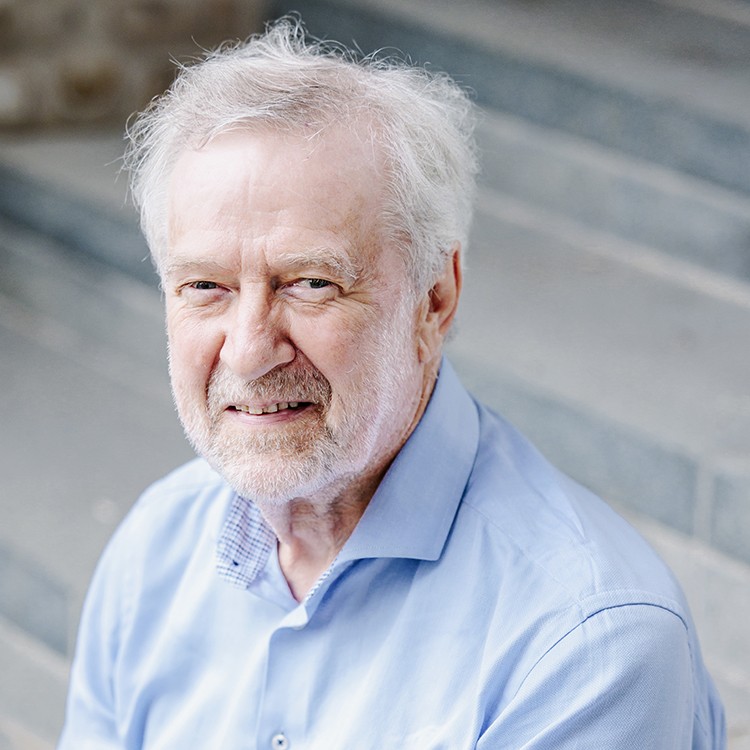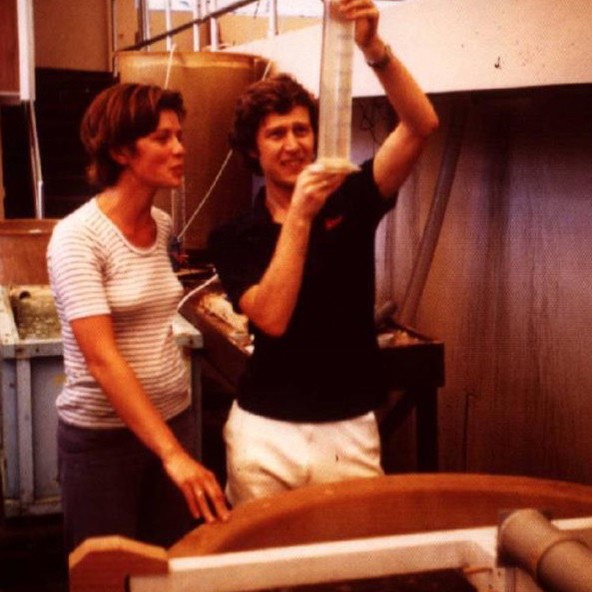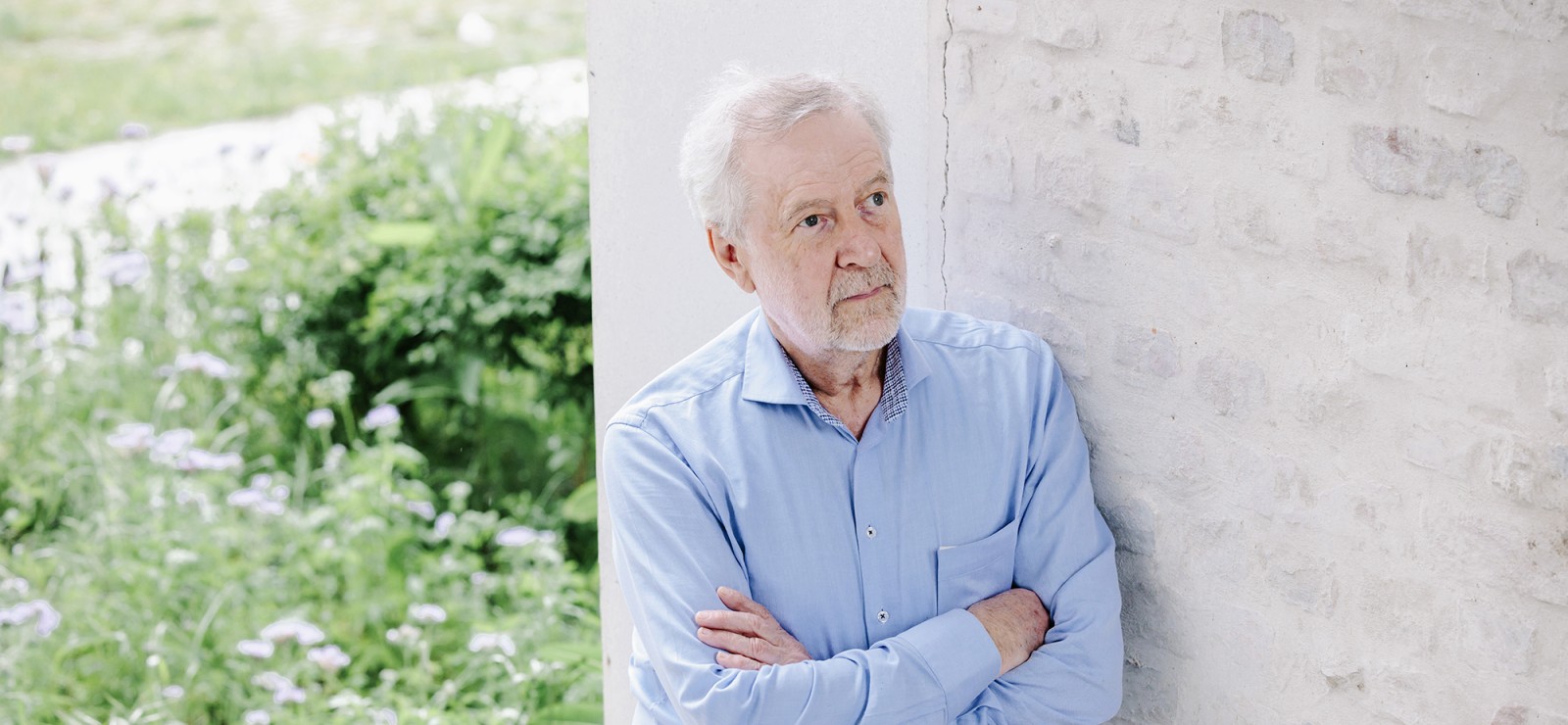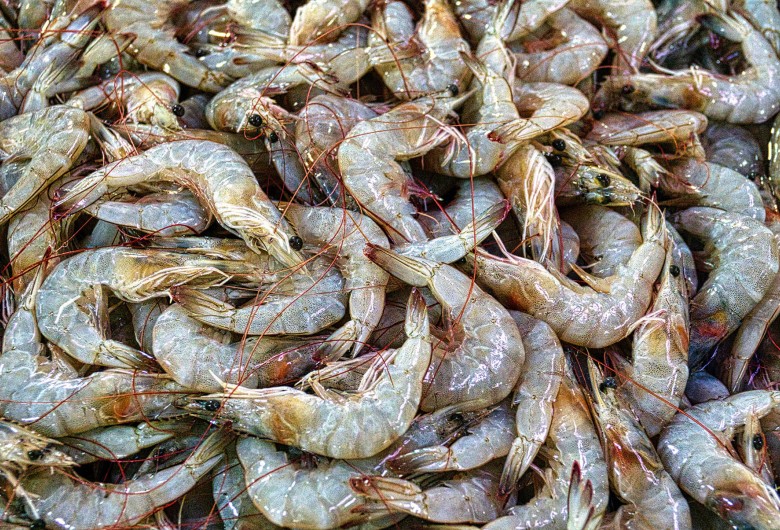Marine biologist and Professor Emeritus Patrick Sorgeloos (Faculty of Bioscience Engineering) was instrumental in shaping modern aquaculture in recent decades. If his career has taught him one thing, it is that aquaculture has a crucial role to play in continuing to ensure food security. “By 2050 more than half of our food must come from the sea. And it’s possible.”
In a nutshell
- Thanks to the pioneering work of marine biologist Patrick Sorgeloos, UGent is known today as a world authority on the brine shrimp, or Artemia.
- The brine shrimp is the baby food of fish and shellfish in aquaculture. What is aquaculture? Aquaculture includes the cultivation of fish, molluscs, crustaceans and algae for consumption.
- If we are to keep feeding everyone, more food from the sea is the only solution.
Already, fish and crustaceans from aquaculture are feeding millions of people, but farming must be ramped up and made more sustainable. Patrick Sorgeloos: “At the moment, barely two percent of our food comes from the aquatic environment (fresh, brackish and seawater). But when I see how much the consumption of aquaculture fish and crustaceans has grown in recent decades, especially in freshwater, we can achieve the same with marine aquaculture."
The significant growth of aquaculture is owed in large part to Patrick Sorgeloos himself. His pioneering work and multidisciplinary approach put UGent on the map as a reference in the field. Today, ten years into his retirement, he is still very actively involved in projects that will shape the future of aquaculture.
In between two trips, we met up with this unstoppable academic whirlwind for a look back on the milestones in his career. The occasion is the launch of the book ‘Pekel’ (Brine), authored by the son of his erstwhile best friend. In his book he describes how they met, interweaving the facts with a quest for a universal story of passion, of wonder and of the gentle sacrifices that come with it.
More food from the sea
Talking to Patrick it’s easy to see how the author became so inspired by Patrick's life's work. His drive is as strong today as it was in the early years of his research. That is because he set himself an ambitious goal that guided his entire academic career: improving aquaculture to feed the world. Central to that issue: the brine shrimp Artemia, a tiny animal - barely a centimetre in length - that is a major source of nutrition for fish and crustaceans in aquaculture. For some fifty years, Patrick's life has revolved around this one tiny creature. Initially from research on how to farm the shrimp itself, today from other challenging questions such as: can integrated and sustainable aquaculture feed the world?
These are questions that don’t come out of the blue. Climate change is putting pressure on food production worldwide. And by 2050 there will be 9 billion of us. Patrick: “We can’t simply start cultivating more land. As freshwater becomes increasingly scarce, more and more of our food will have to be sourced from the sea. In my opinion this is the only solution if we are to keep feeding everyone.”

Patrick Sorgeloos: “We can’t simply start cultivating more land. As freshwater becomes increasingly scarce, more and more of our food will have to be sourced from the sea. In my opinion this is the only solution if we are to keep feeding everyone.”
A brine shrimp burger
Through aquaculture, but also using the brine shrimp itself as a food source. He is firmly convinced of the latter: "In Bangladesh you can already order an Artemia kebab. And brine shrimp is also a food source in Vietnam. Every UGent rector who accompanied me to Vietnam was served artemia omelette (laughs). An initial project by the world food organisation FAO is now underway to see if we can make it happen. Brine shrimp are 60% protein so they are a good meat substitute and also cheap and sustainable to grow."
The potential is enormous but that doesn’t mean that tomorrow we’ll all be eating Artemia burgers in Europe. “Being recognised as a food product in Europe is very complex,” he admits, "but this could be an ideal solution for places around the world facing food shortages."
Looking to the past
Thanks in part to Patrick, modern aquaculture has had a wonderful run over the past few decades but now it is hitting its limits, with even a negative ecological impact. "If we want to make the sector more sustainable while respecting biodiversity, we must transition from monoculture to integrated aquaculture."
Integrated aquaculture existed as long as 2,000 years ago in China, the cradle of traditional aquaculture. "Meanwhile, it has been proven that an integrated system provides a better ecological balance: the combination of crops is better for the health of fish and crustaceans; the plants absorb excess nitrogen and purify the water. In Asia, the first industrial projects are now underway and they are a success."
China means business with the conversion. "Two thousand years ago, they practised aquaculture by letting carp swim in the rice fields - until pesticides replaced the carp. Meanwhile, 9 percent of the acreage has switched to organic rice farming. While this means less yield from rice, growers compensate this loss with additional yield through aquaculture with crab and shrimp species."
The major European aquaculture companies are hesitant because the switch comes at a great cost. "The largest producer of farmed salmon is Norway. Every year they produce 1.2 billion kilograms of salmon, but their approach is not environmentally friendly enough in the long run. While they are prepared to switch to sustainable integrated farming, their gross margins are too small to be able to make those investments. The government will have to pitch in to make the switch because opting for integrated and sustainable aquaculture is a must if the sector is to have a future."
Read also
No prawns or scampi without Ghent University
If we want to continue enjoying our weekly portion of fish or shellfish in the future, it will be largely thanks to aquaculture. Just call it the fish farm of the future. Ghent University is one of the world’s top researchers on the sustainability and development of aquaculture.
The Catacombs of Rozier
Today Patrick looks at aquaculture and brine shrimp through a global lens, but the early days of his research - in the mid-1970s - took place in the catacombs of Rozier and Joseph Plateau Street. "My lab started with a single classroom. When Applied Sciences moved, I appropriated more and more space. We were the first lab at UGent to carry out research into aquaculture, so 'what is this guy doing?' was a common question in those days (roars with laughter)."
As a marine biologist, Patrick quickly realised he couldn’t do his research alone. "I lacked the necessary competencies so I solicited help from a microbiologist, a biotechnologist, there’s a pharmacist who did his PhD with me, ... In those days such a multidisciplinary approach was unprecedented. I have always looked over the fence, including outside UGent. I am of the opinion that one and one equals three. I started working with other universities as early as the 1970s. Both in Belgium and abroad: Europe, the US, Asia...”
To Asia
Development cooperation was always important to Patrick. He made the move to Asia as early as the mid-1970s. The first few years were spent in the Philippines, then in Vietnam. “When I went to Vietnam in 1982 the war there was less than a decade behind us. Travelling to a communist country in the midst of the Cold War to engage in development cooperation was far from evident. But stubborn as I was, I left anyway, with a visa from the UN."
It is there that Patrick achieved academic acceleration. In terms of academic development cooperation, he considers the anchoring with local universities his crowning achievement. "More than 20 Master's students completed their doctorates with us at UGent. In forty years’ time, Vietnam developed into the third largest aquaculture country in the world, a very impressive achievement. They now produce the most expensive and best quality of Artemia in the world. What we achieved in Vietnam has inspired numerous other countries. Several of my former students there now hold top positions in politics, at universities and in the business world. The link with UGent is strong, and it's all thanks to our pioneering work."
Tribute to Magda
In 2010, Patrick's wife Magda died. "Through the Mama Magda Fund, UGent honours the memory of my wife, who meant so much to all the doctoral students that passed through UGent over the past decades. It was Magda who gave them a warm welcome and quickly made them feel at home."
The Mama Magda Fund makes it possible to obtain a joint PhD degree in aquaculture, another of his hobbyhorses. "In recent years, we awarded the first joint degrees, funded through the Mama Magda Fund. As academic knowledge grows in the Global South, there is more and more investment in local research, which is a good thing. The academic playing field is becoming more level and greater local academic knowledge also benefits the local aquaculture sector. For a university, a joint degree is an investment in the future. If UGent can send out and invite doctoral students, it will keep its finger on the pulse and remain relevant for aquaculture research."

Patrick Sorgeloos and wife Magda during a research stay at the Philippines in 1977
Brine: The Author, the Professor and the Tiny Shrimp that Changed the World
‘Pekel' is a literary description of Patrick Sorgeloos’s academic journey. A quest for a universal story of passion, wonder and the gentle sacrifices that come with it. The author is Dieter Honoré, the son of a childhood friend of Patrick Sorgeloos. They met after the death of Dieter's father and that initial conversation culminated in this book, subtitled ‘The Author, the Professor and the Tiny Shrimp that Changed the World’. It is available through the website of publisher Borgerhoff & Lamberigts.
Read also
This is how to avoid parasites on holiday
Holidays! You're already looking forward to all the delicious things you'll eat while travelling, but wait ... Can you just eat anything? "There are some foods that you need to be a bit careful with.” Professor Sarah Gabriel tells us how to avoid taking an extra passenger back home
Is a stool transplant a potential treatment for Parkinson’s?
A recent study into Parkinson’s disease has shown that a stool transplant may constitute a new and valuable treatment of the disease. “It offers a potentially safe, effective and cost-efficient way of alleviating the symptoms and improving the quality of life of millions. A 'bacterial pill' might replace the stool transplant in the future. But more research is needed.”
In her will, Anja wants to save animals at the Ghent University animal hospital
Six months ago, Anja Peumans made the decision: she changed her will so that part of her inheritance would go to the Ghent University Animal Clinic. “I felt like a weight had been lifted from my shoulders. Finally, I thought, I can fulfil my dream after I am gone”.
Breakthrough in Alzheimer’s research thanks to donations and legacies
De ziekte van Alzheimer, frontotemporale dementie en ALS zijn verwoestende neurodegeneratieve ziekten zonder uitzicht op herstel. UGent-professor Bart Dermaut, klinisch geneticus en arts, realiseert met zijn wetenschappelijk onderzoek een doorbraak die toekomstige therapieën een nieuwe richting kan uitsturen. Mede dankzij schenkingen en erfenissen van patiënten.



